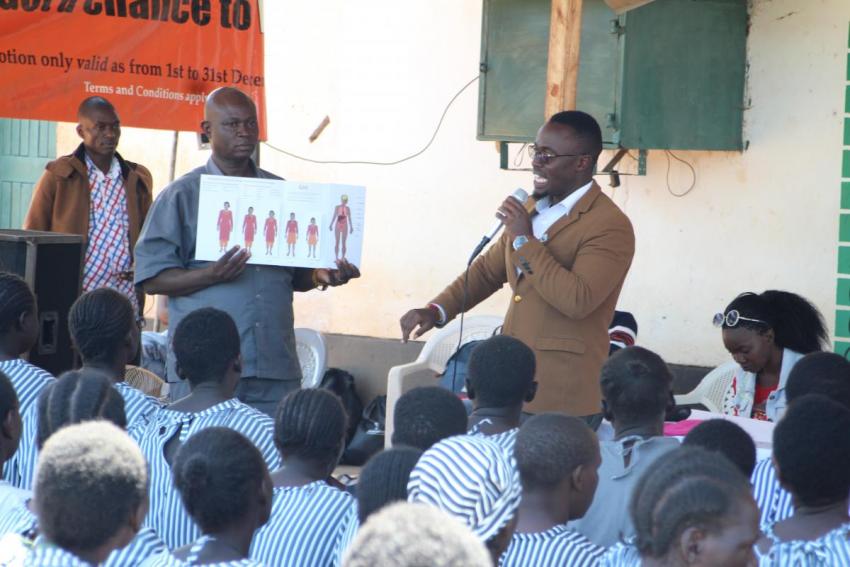Despite all the awareness raising, menstruation still remains a taboo topic due to cultural beliefs and practices.
Published on: 24/05/2022

As the world marks Menstrual Hygiene Day 2022 on 28 May, significant gains have been made with regards to ensuring that globally, menstruators bleed with dignity and pride. Since its establishment 8 years ago, World MH Day as it is popularly known, has been instrumental in promoting menstrual rights as fundamental Sexual and Reproductive Health Rights for women and girls. Actors and players in the menstrual health space have used MH Day celebrations to advance matters menstruation beyond menstrual access and menstrual availability to incorporate aspects of menstrual-related health complications, menstrual materials and the environment as well as advocating for increased government prioritisation in terms of budgetary allocation and financial investments. In essence, MH day continues to offer a global advocacy platform for breaking the silence, raising awareness and changing the negative social norms around menstrual health and hygiene.
Over the years as calls to end period poverty and period stigma have increasingly gained traction among both state and non-state actors, menstruation still remains a taboo topic with cultural beliefs and practices challenging efforts, sacrifices and resources injected towards leaving no one behind during this decade of action. But what will it take to ensure the attainment of SDG 6.2 on paying special attention to the needs of women and those in vulnerable situation with about 7 years remaining under the 2030 agenda on sustainable development?
“It is now evolving into a race against time, women and girls have suffered far too long and our commitment to even the playground is unshaken despite the numerous information gaps we face as a country”, reckons Neville Okwaro, a senior Menstrual Hygiene Management trainer with the Ministry of Health Kenya. On MH Day 2020, at the height of the COVID-19 pandemic, Kenya launched a Menstrual Hygiene Management Policy and Strategy. In this MHM 2019-2024 strategy document approaches that support innovation around the engagement of men and boys have been captured to include awareness creation through dissemination of factual, reliable, pragmatic and age-specific information to counter some of the negative taboos and myths.
With timely and adequate access to menstrual information, men and boys have the potential to contribute towards increased education and economic potential, substantially reducing instances of sexual and gender-based violence (SGBV) and so improve health, education and socioeconomic outcomes for menstruating women and girls. However, men who have boldly declared their support and have been actively involved in promoting menstrual rights of women and girls still face resistance, hostilities and have been subjects of ridicule in communities whose values are strongly anchored in patriarchy at the expense of gender empowerment. Actions that have dealt a significant blow to some of the gender empowerment gains made over the past few decades.
Peter Masila, a village elder in Kitui County is quick to note that, “It is utterly unacceptable when communities openly show disregard to a natural course like menstruation, we ought to be supportive to our male counterparts, fundamentally taking into account that it is our women and girls whom we are actually benefiting”.
As a young man committed to supporting the menstrual rights of women and girls, I believe timely and credible information to allow constructive participation plays a crucial role in positively empowering men and boys as period allies. This is because giving a voice to the marginalised and vulnerable menstruators is not only the right thing to do but also a commitment that sends a strong signal and provides momentum for an ambitious policy response to menstrual health and hygiene at international, regional, national and even sub-national levels. After all, isn’t this a good enough reason to show that indeed, #WeAreCommited? Enjoy MH Day 2022.
At IRC we have strong opinions and we value honest and frank discussion, so you won't be surprised to hear that not all the opinions on this site represent our official policy.